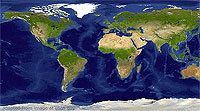How much does the rest of the world hate Russia?

(Business New Europe – bne.eu – Ben Aris – September 11, 2013) How much does the rest of the world hate Russia? Answer: a lot.
This excerpt below is part of an internal memo by a major US bank, which will remain nameless, to clients on the results of the Moscow mayoral elections at the weekend.
What is supposed to pass for analysis is actually just prejudice. The author writes that within the entire nation of 143m people, “the proportion of the weak, the passive, the lazy… is unnaturally high.”
The cause? Stalin of course – with some help from the Revolution and World War II. Quite a lot has changed since Stalin died in 1953, but that doesn’t seem to bother many commentators. Indeed, quite a lot has changed in the UK since then too. In an equivalent analysis, you might as well characterise the British on the basis of what you think of Churchill and ignore the changes brought about by Thatcher.
It is this dense-headed thinking that is causing Russia some of its biggest problems, but of course the Kremlin doesn’t get it and does little to counter this image. I guess Russia will get there in the end, but at this rate it is going to take a long, long time.
Here’s the “analysis”:
“The outcome of the Sunday’s Moscow mayoral elections (about 30% for the opposition and about 60% combined for the current mayor and the communists with the turnout of approximately 30%) rather plainly shows what part of the society in Russia’s most progressive, most reform-minded city (in the country overall the vote for Navalny would have been much smaller) would like things to change. This is a natural outcome of decades and generations of negative demographic selection where during the Revolution, the Stalinism and the WWII the best, the most active and creative, those capable of leadership and creative thinking, those who were different and spoke out were systematically and continuously exterminated. As a result, we have a society with abnormal demographics where the proportion of the weak, the passive, the lazy (in short, those who today’s corporations and schools call the ‘underperformers’) is unnaturally high and evidently exceeds the critical mass, making the development and progress prohibitively slow or impossible. We are the ship whose best sailors, navigators, engineers and captains were thrown overboard. Without them we are struggling to navigate the difficult seas and are doomed to keep running aground and run a high risk of eventually capsizing and sinking. Care to come onboard?”
